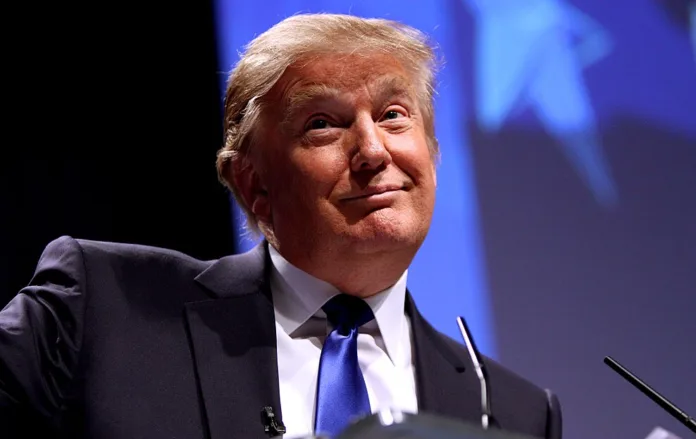Trump’s five-day trip includes EU trade talks, political tension, and luxury golf visits
US President Donald Trump has arrived in Scotland for a five-day trip that merges political diplomacy with personal business—a rare blend that’s already stirring protests, press scrutiny, and international speculation.
Waving from the window of his armoured motorcade as it rolled through the quiet village of Turnberry, Trump declared, “It’s great to be in Scotland,” while en route to his luxury golf resort. But the presidential visit has sparked both warm welcomes and fierce protests as the divisive figure resumes his international tour following re-election.
The trip marks Trump’s first return to the UK since reclaiming the presidency and includes meetings with UK Prime Minister Keir Starmer, Scottish First Minister John Swinney, and European Commission President Ursula von der Leyen. He’s also scheduled to visit his golf clubs in Turnberry and Aberdeen, and preside over the opening of a new course in Aberdeenshire.
A Deal—or Just a Round of Golf?
Though the White House labels this visit as largely personal, the itinerary includes a high-stakes Sunday meeting with von der Leyen. Trump claims the two will be “working on a deal” to stabilise US-EU trade relations ahead of an August 1st deadline to avoid a 30% tariff hike.
“I think it’s 50-50, maybe less than that,” Trump told reporters of the deal’s prospects, before turning the conversation toward immigration and his disdain for wind turbines, which he claims are “ruining the country”.
The visit’s dual nature—half-diplomatic, half-promotional—has prompted renewed ethical concerns. “It’s highly unusual for a sitting president to promote their personal assets abroad while negotiating global policy,” noted BBC Scotland editor James Cook.
Political Posturing and Public Pushback
Crowds gathered along the motorcade route included both admirers and vocal opponents. Demonstrators criticised Trump’s stance on climate change, global conflict, and his recent comments on immigration. Protesters also drew attention to Trump’s alleged attempts to distract from ongoing media scrutiny surrounding Jeffrey Epstein files, which have dominated headlines in the US.
The protests have been fuelled in part by Trump’s inflammatory claims that former President Barack Obama was part of a “treasonous conspiracy” ahead of the 2016 election. Obama’s office responded sharply, calling the remarks “a weak attempt at distraction”.
In Scotland, First Minister John Swinney welcomed the visit as an opportunity to “advance Scotland’s interests,” including raising humanitarian concerns, such as the situation in Gaza. He added, “This weekend is a landmark moment in our relationship with the United States… Scotland will show the world the very best of itself.”
Swinney also underscored the right to peaceful protest, saying it is a value “we cherish”.
UK Trade Deal Still on the Table
Trump’s meeting with Prime Minister Keir Starmer is expected to revisit the US-UK trade deal formalised in June. While it includes baseline tariffs of 10% on British goods and exemptions for aerospace and auto exports, several contentious items remain unresolved.
Among these is a 25% tariff on UK aluminium and steel, as well as Britain’s digital services tax, which affects US tech giants. Trump’s administration is pushing for its removal, citing unfair targeting of American companies.
Back in Washington, Press Secretary Karoline Leavitt framed the visit as a necessary step to “refine outstanding commitments” and reinforce the “special relationship” between the US and UK.
